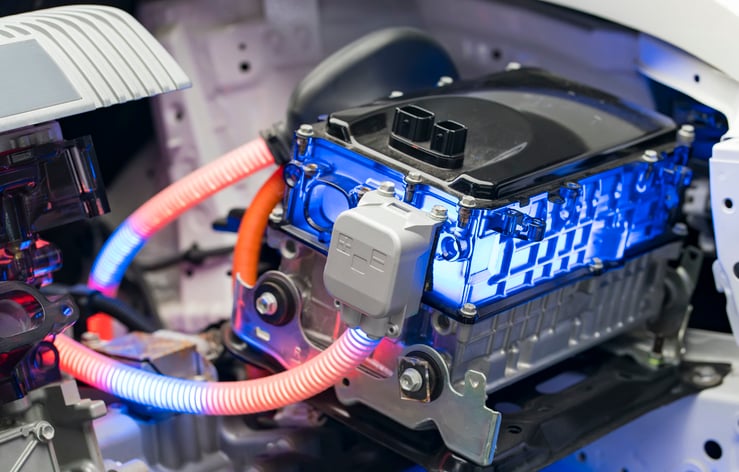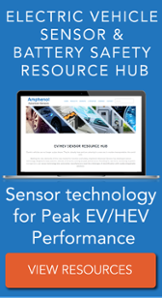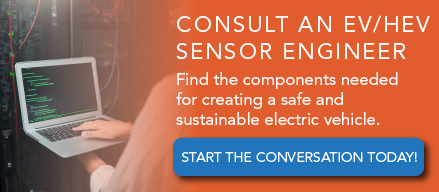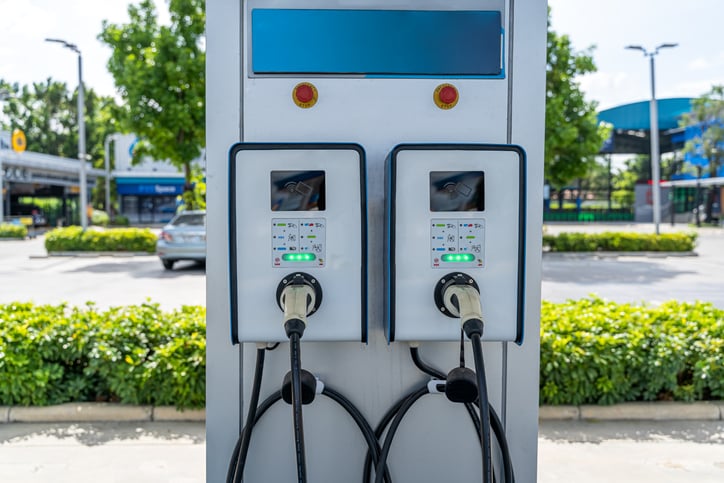Services & Capabilities an EV OEM Sensor Manufacturer Should Provide

In some relationships, there's a certain level of expectation for deliverables.
Without commitments that are met, a partnership of any sort simply doesn't work.
This is especially true in the automotive industry as it makes the conversion to fully electric vehicles (EV). As with any other vehicle, building an EV that exceeds consumer expectations for performance and safety involves an extensive supply chain -- from materials to the major components of electric vehicles.
The suppliers automakers rely on for developing prototypes or mass-producing new vehicles are crucial to meeting the demands of the evolving transportation industry.
It goes without saying that an OEM sensor manufacturer should deliver high-quality and reliable EV components. At the same time, however, its suite of services and capabilities need to go beyond just fulfilling orders if they're to help their auto manufacturer partners remain competitive.
5 "Must" Services & Capabilities for an OEM Sensor Manufacturer
An automaker -- or any vehicle manufacturer -- is only as good as its supply chain.
With the transportation industry in the midst of a tectonic shift, keeping pace or sprinting ahead of the competition largely depends on having suppliers that provide the highest levels of service.
To get the most from an EV OEM sensor manufacturer, its services and capabilities beyond making your monitoring devices should include:
- Detailed safety specs
- Physics-based design
- Validation testing
- Expertise
- Market-based reactivity
1. Detailed Safety Specs
For every sensor in an electric vehicle, its safe function is the #1 priority. Its manufacturer should have a strong commitment to safety and ensure that its sensors meet all relevant industry regulations and standards.
To that end, your OEM sensor manufacturer should provide detailed information on their sensors’:
- Testing and results
- Safety ratings
- Error codes
- Lifespan
- Warranty info
Meeting these parameters comes down to one key component of every working relationship: communication. There’s nothing more important in the beginning stages of working with an OEM sensor supplier than having a deep dialog about how its monitoring devices:
- Fail
- React during a failure
- Communicate with the EV’s systems
2. Physics-Based Design
Part of ensuring a sensor's robust, accurate, and safe operation is designing the device to its environment.
Making a sensor that meets the rigors of application requires a physics-based design. Put simply, it's not enough to accept a "one-size-fits-all" sensor for an EV. Environmental factors directly impact a sensor's accuracy, functionality, and lifespan.
In other words, your automotive sensor manufacturer should be able to provide sensors with:
- Customizable designs
- Temperature ratings and testing results
- Performance in extreme conditions such as shock, vibration, or EMI/RFI interference
- Dust and water resistance ratings
Consider heat. If a sensor is not designed to withstand sudden temperature variation or extreme temperatures its ability to work as expected is drastically diminished. At the same time, the risk of premature failures that lead to catastrophic thermal events increases.
Your OEM sensor manufacturer should have a strong understanding of physics and provide optimized designs for sensor application in an electric vehicle.
3. Validation Testing
 To ensure their sensors are working as expected and meet all safety requirements, it's important for an OEM sensor supplier to have comprehensive validation procedures in place. Validation testing processes should include:
To ensure their sensors are working as expected and meet all safety requirements, it's important for an OEM sensor supplier to have comprehensive validation procedures in place. Validation testing processes should include:
- Environmental testing (heat, cold, vibration, etc.)
- Functionality testing (making sure the sensor is reading accurately)
- Reliability testing (determining how long the sensor will last)
- Safety certification (meeting government or industry regulations)
Your OEM sensor supplier should be able to provide you with verification of your sensors' performance through reports and certificates of compliance. Having this data gives you peace of mind that your electric vehicle is safe and meets all regulatory standards.
If your sensor manufacturer doesn't provide validation testing (a red flag for a partnership), remember: outsourcing or completing sensor testing internally takes time and costs money.
4. Expertise & Experience
Two things that go hand-in-hand, a sensor manufacturer’s expertise and experience are invaluable.
There should be no question about an OEM sensor manufacturer’s knowledge of their industry and, by extension, their ability to make sensors that outperform expectations. In certain respects, the best OEM sensor manufacturer to partner with is one whose experience and expertise exceed your own. This will not only enhance the performance and safety of the sensors, but it can also provide valuable insights for your own electric vehicle design and development. Working together, you’ll be able to design sensor technology that’s robust, responsive, and long-lasting.
Still, a relationship with an OEM sensor manufacturer should be one of discovery. For your part, it’s about learning as much as possible about their products, processes, and successes. On the other end, they should be learning the same about you and have a command over the intended application for their sensors in your project.
5. Market-Based Reactivity
With the mass conversion of vehicles from being powered by fossil fuel to electricity, the automotive market is moving faster than ever. The pressure to keep up with market demand and competition is staggering.
From a production standpoint, what used to take the better part of a year to develop and create now often happens in a matter of weeks. Because of market conditions, turnaround times are tight. A small disruption at any stage of a supply chain or production workflow can amount to a large – and costly – delay.
An OEM sensor manufacturer should operate with the same sense of urgency as you and have the capabilities to keep up with your needs.
In addition to having the resources immediately available to produce your order, they should also have long-range planning down to a science and follow PPAP guidelines. Supply chains across all industries are still tumultuous and somewhat unreliable – remember the ongoing chips shortage? An OEM sensor manufacturer’s production plans should account for this and include defined ways they’ll be prepared, such as stockpiling materials and components ahead of time. More importantly, an OEM sensor manufacturer should have clearly defined and communicated protocols for when the unforeseen happens.
EV OEM Sensor Manufacturer | Outpacing the Competition
As the automotive industry transitions from traditional fuel sources to electric power, the company an auto manufacturer keeps via its supply chain matters more than ever.
With an OEM sensor manufacturer that brings more to the table than just order fulfillment, it's not only possible to meet market demands but also stay ahead of the competition.
Learn About Our Suite of Services
Book time with one of our EV sensor engineers today.




